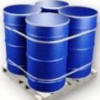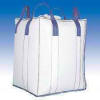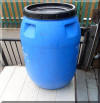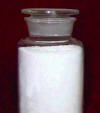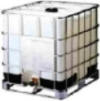| Anmol Chemicals is the pioneer manufacturers of Zinc Carbonate, Pharmaceutical Excipients Fragrance & Flavor chemicals in India. We offer Halal and Kosher Zinc Carbonate made in an ISO9001, ISO22000 (FSSC22000) cGMP and GLP certified facility. Our group has several manufacturing facilities spread across the world, supported by toll manufacturers and representatives in UAE, Europe, Africa, USA, China and has several associated manufacturing facilities spread across India. All the Information on Physics, Chemistry, Applications, Uses and Technology on Manufacture of Zinc Carbonate is in these pages. |
| The units have one or more of the certifications like FDA GMP, ISO 9001, ISO 22000, HACCP, REACH, Kosher & Halal |
Zinc Carbonate USP and Oil Well Drilling Fracturing Grade manufacturers Suppliers
Zinc Carbonate USP
Zinc Carbonate USP
3Zn(OH)2·2ZnCO3 549.01
Basic zinc carbonate.
Zinc subcarbonate [3486-35-9]
Zinc Carbonate contains the equivalent of not less than 70.0 percent of ZnO.
Identification: A solution of it in a slight excess of hydrochloric acid responds to the tests for Zinc.
Insoluble matter: Dissolve 10-g Zinc Carbonate in a mixture of 100 mL of water and 7 mL of sulfuric acid, and heat on a steam bath for 1 hour Filter the solution through a tarred sintered-glass crucible, wash with hot water, dry the crucible at 105 , cool, and weigh: the residue weighs not more than 20 mg (0.02%).
Chloride: A 1.0-g Zinc Carbonate dissolved in a mixture of 20 mL of water and 3 mL of nitric acid shows no more chloride than corresponds to 0.03 mL of 0.02 N hydrochloric acid (0.002%).
Sulfate: Dissolve 10.0-g Zinc Carbonate in a mixture of 75 mL of water and 10 mL of hydrochloric acid, and filter. Neutralize the filtrate with ammonium hydroxide, dilute with water to 100 mL, and mix. To 10.0 mL of this solution add 1 mL of 0.6 N hydrochloric acid and 1 mL of barium chloride TS, mix, and allow to stand for 10 minutes. This test solution shows no more turbidity, if any, than that produced in a solution containing 0.10 mL of 0.02 N sulfuric acid and the same quantities of reagents used to prepare the test solution (0.01%).
Iron: Dissolve 1.0-g Zinc Carbonate in 20 mL of water and 3 mL of hydrochloric acid: the limit is 0.002%.
Lead: the limit is 5 ppm.
Substances not precipitated by ammonium sulfide: Dissolve 1.0-g Zinc Carbonate in 10 mL of water and 2 mL of sulfuric acid, dilute with water to 80 mL, add 10 mL of ammonium hydroxide, and pass hydrogen sulfide through the solution for about 30 minutes. Dilute with water to 100 mL, and allow the precipitate to settle. Decant the supernatant through a filter, and transfer 50 mL of the clear filtrate to a tarred dish, evaporate to dryness, ignite, gently at first and finally at 800 ± 25 , cool, and weigh: the weight of the residue does not exceed 2 mg (0.4%).
Assay: Transfer about 2.0 g of Zinc Carbonate, accurately weighed, to a 125-mL conical flask, add 50.0 mL of 1 N sulfuric acid VS, and swirl to dissolve. Add 3 drops of methyl orange TS, and titrate with 1 N sodium hydroxide VS to a yellow endpoint. Each mL of 1 N sulfuric acid consumed is equivalent to 40.69 mg of ZnO.
Zinc Carbonate is widely used in Oil well Drilling and Hydraulic Fracturing.
Zinc Carbonate USP and Oil Well Drilling Hydraulic Fracturing Grade manufacturers:
Anmol Chemicals
S-8, SARIFA MANSION, 2ND FLANK ROAD, CHINCHBUNDER, MUMBAI 400009, INDIA
TEL: (OFFICE) 91-22-23770100, 23726950, 23774610, 23723564. FAX: 91-22-23728264
e-mail: anmolc@mtnl.net.in

Product Links: ---- Ammonium Chloride --- Calcium Chloride --- Potassium Chloride --- Sodium Acetate --- Zinc Carbonate --- Zinc Oxide --- Zinc Peroxide --- Zinc Sulfate
Exports to USA, Canada, UAE, Dubai, South Africa, Tanzania, Kenya, Nigeria, Egypt, Uganda, Turkey, Mexico, Brazil, Chile, Argentina, Europe Netherlands, Italy, Spain, Germany, Portugal, France, Malaysia, Indonesia, Thailand, Korea, Vietnam, Japan, etc.

